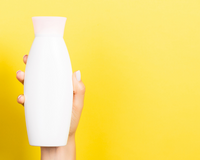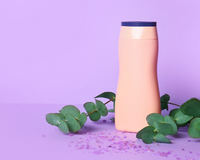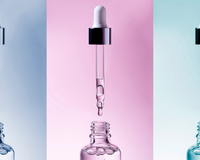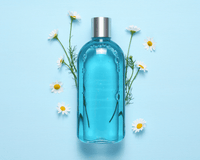Black Hair Care Products For Natural Hair Growth
It's important to most women, but for Mash-Ups, hair and the rules that come with it can be a symbol of how hard it can be to live in two different cultures with different beauty standards. Especially for Black women, a hairstyle can be seen as more of a political choice than an aesthetic one, and we have a lot of questions. Using the right black hair care products for natural hair growth is very important. Get going! A lot of time and money goes into taking care of the hair of black women. According to marketing firms, the Black haircare industry is worth $774 million. There are a lot of deep conditioners and bobby pins in that box.
Yet, people who are not from our culture often get something so important to us wrong. But clearing up small misunderstandings, like those about hair, can help a lot with the big ones, like those about race. So please let me tell you this basic information about Black hair.
Other races' strands can be straight, wavy, or curly, but most black people's strands are tightly curled. (The chart in this article gives a more detailed explanation.) It might look like a spiral, a coil, a loop, a zigzag, or some other shape. This is why it tends to grow up instead of down and can form shapes like afros and puffs that defy gravity.
How To Choose Black Hair Care Products For Natural Hair Growth?
Black hair doesn't grow is a myth. Your hair grows about half an inch every month, depending on your health and genes. Really, how long your hair depends more on how much of it you keep after it breaks. Because black hair is curly, it can be weaker than hair that is straight. Each bend in the strand makes the hair shaft weaker, which makes it more likely to break. All this means is that you have to be a little more careful with it, so it doesn't break. So, our hair is usually shorter, but that doesn't mean it stops growing. Black women can get perms, weaves, extensions, and sometimes all three simultaneously.
What are all of these things, though? Great question! When non-Black women talk about a "perm," they often mean a chemical process that gives their hair a permanent curl. But the curls are already in black hair. So when we say "perm," we mean that our hair has been straightened for good (also known as relaxing.)
The woman's real hair is braided into cornrows or other types of scalp braids for a weave. Then, the extra hair is woven into the braids using a special needle and string for hair weaving. Extensions are like weaves, but they don't usually need cornrows as a base. Depending on the type of extensions, the hair can be added by braiding or even using special glue. This usually means Black hair that hasn't been changed by chemicals to make it feel different. Some people go even further and don't use any chemicals or things that don't come from nature.
Black Hair Care Tips For Natural Hair Growth
Black Americans have been told that they should try to look as European as possible for a long time. So, for a long time, the only way for Black women to look "presentable" was to straighten their hair with chemicals or a hot comb. If you want to be pretty or get a good job, you should try to make your hair look as little Black as possible.
During the Civil Rights Movement, people started to wear their hair in its natural state again, and this trend has only grown since then. Natural hair is not always a sign of Black pride, but it is always a sign that we accept our hair the way it grows out of our heads. When I wear my hair in an afro or a puff to a business meeting, I'm doing something that many generations of Black women wouldn't have dared to do.
Avoid From Heated Styling Products
A hot comb is a torture tool from the Middle Ages that was used to punish Black women for not having straight hair that met European beauty standards. It was used to straighten hair. It is a piece of metal with a handle that can be held over a fire or on a stove. Once it's hot enough to burn your skin off, it's combed through your hair to "press" the curls out. Depending on how steady your hairdresser, mother, or best friend's hand is, it could also burn the back of your neck, the tips of your ears, and any other place it touches. Most people don't use hot combs anymore, but any Black woman over 20 has a memory of being burned by one.
Don't Wash Your Hair Every Day
A balance of the natural oils we all make is the key to healthy, shiny hair. Oil moves pretty easily down the shaft of straight or curly hair. But if your hair is very curly or kinked, it's harder for oil to get through those loops. So, while non-Black people may wash their hair a lot to get rid of excess oil, Black women worry more about keeping what they have or getting more. If we washed our hair every day, it would become dry and unhealthy.
From a cultural point of view, Black women have the most hairstyle options. It can be straight or curly. Purchased or grown. Straight or full of fluff. Our bald heads were made more interesting with a big pair of earrings. Don't freak out. It's just one of the many things that make us great. One thing that isn't so great about this? Having to talk about how our hair has "magically grown" on the first day back at the office after getting it cut. Girl.
It is very rude to touch a Black woman's hair without her permission. But the answer is probably no, even if you ask nicely. Most of us also think that letting strangers touch our hair just so they can feel it is like being petted like an animal. It's awkward at best and dehumanizing at worst. So, you can look at our hair from a distance, but if you want to keep your hands, please keep them to yourself.









